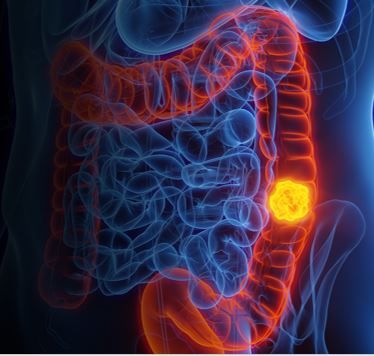Blood-Based DNA Test Shows Sensitivity of 83% for Colorectal Cancer
Findings from the ECLIPSE clinical trial showed the blood-based cancer screening test detects 83% of people with CRC, with a specificity of 90%.
A new cell-free DNA blood based screening test demonstrated sensitivity of 83% for colorectal cancer (CRC), 90% specificity for advanced neoplasia, and 13% sensitivity for advanced precancerous lesions, according to findings published March 14 in the New England Journal of Medicine.1
The results are described by the blood test manufacturer Guardant Health as “on par with the performance of other guideline-recommended non-invasive screening modalities,” which have an overall sensitivity for CRC detection of between 74% to 92%, according to a press statement.2
The findings are from the multisite Evaluation of the ctDNA LUNAR Test in an Average Patient Screening Episode (ECLIPSE) clinical trial, which enrolled almost 8000 individuals aged 45 to 80 years at average risk for colon cancer and undergoing routine screening with colonoscopy.1 ECLIPSE was designed specifically to evaluate the performance of the Shield ctDNA blood test from biotechnology company Guardant Health against findings on colonoscopy.1 Shield detects CRC signals in the blood from circulating tumor DNA (ctDNA) shed by tumors.3
©Sebastian Kaulitzky/stock.adobe.com

“Colorectal cancer is common and very preventable with screening, but only about 50% to 60% of people who are eligible for screening actually take those tests,” corresponding author William Grady, MD, medical director of the Gastrointestinal Cancer Prevention Program at Fred Hutchinson Cancer Center, said in the Fred Hutch announcement.3 “Getting people to be screened for cancer works best when we offer them screening options and then let them choose what works best for them.”3
Grady also emphasizes the declining age at which people are diagnosed with CRC, noting that is it now “the third most common cancer for people under the age of 50. Having a blood-based test for people to take during routine doctor’s visits,” he added, could be a valuable option to help increase screening rates.3
In fact, the US Preventive Services Task Force in 2021 lowered the recommend age to begin CRC screening from 50 to 45 years to include these younger adults. A positive or abnormal finding on screening tests other than colonoscopy requires follow-up with the procedure, still seen as the gold standard for CRC detection and prevention4 but also neglected by far too many, as Grady stresses.
The ECLIPSE trial of the performance characteristics of the cell-free DNA blood-based Shield test was conducted across 265 US study sites.1 In addition to inclusion criteria mentioned, key exclusion criteria included a history of cancer, a known diagnosis of inflammatory bowel disease, a hereditary predisposition to colorectal cancer, a history of colorectal cancer in a first-degree relative, and recent receipt of screening for colorectal cancer.1
The coprimary outcomes were sensitivity for colorectal cancer and specificity for advanced neoplasia relative to screening colonoscopy. The secondary outcome was sensitivity to detect advanced precancerous lesions, defined as advanced adenoma (tubular adenoma ≥10 mm in the largest dimension, adenoma of any size with villous features, high-grade dysplasia, or carcinoma in situ) or sessile serrated lesions ≥ 10 mm in the largest dimension.1
In an initial cohort of 22 877 participants, Grady and colleagues identified 65 individuals with colonoscopy-identified colorectal cancer. Investigators randomly selected 10 193 participants without colorectal cancer from the initial cohort, creating a clinical validation cohort numbering 10 258.1
A total of 7861 participants met all inclusion criteria, had complete and valid colonoscopy results, had valid cfDNA blood-based test results, and were included in the investigators’ final analysis. The participants had a mean age of 60 years and 53.7% were women.1
FINDINGS1
Grady and colleagues reported that among the group with colonoscopy-confirmed CRC (n = 65), 83.1% (n = 54) had a positive cfDNA test and 16.9% had a negative test, which translates to an 83.1% sensitivity of the cfDNA test for detecting colorectal cancer (95% CI, 72.2-90.3). When they analyzed test sensitivity by CRC severity, the investigators found sensitivity for stage I, II, or III CRC was 87.5% (95% CI, 75.3-94.1), but far lower for advanced precancerous lesions at 13.2% (95% CI, 11.3-15.3).1
A total of 89.6% of study participants without colonoscopy-detected advanced colorectal neoplasia had a negative cfDNA blood-based test, while the blood test findings were positive for 10.4% of the subgroup, indicating a specificity of 89.6% for any advanced neoplasia (95% CI, 88.8-90.3), according to the study.1 Grady et al note that the lower boundaries of the 95% CIs for sensitivity for CRC and specificity for advanced neoplasia met prespecified acceptance criteria established in other FDA-approved screening tests for colorectal cancer.1
Among the participants with advanced precancerous lesions identified as the most advanced by colonoscopy, the cfDNA blood-based returned a sensitivity of 13.2% (95% CI, 11.3 to 15.3).1
“The results of the study are a promising step toward developing more convenient tools to detect colorectal cancer early while it is more easily treated,” said Grady.3 “The test, which has an accuracy rate for colon cancer detection similar to stool tests used for early detection of cancer, could offer an alternative for patients who may otherwise decline current screening options."3
References:
Chung DC, Gray DM, Singh H, et al. A cell-free DNA blood-based test for colorectal cancer screening. N Engl J Med. 2024 390:973-983. doi:10.1056/NEJMoa2304714.
2. Guardant Health ECLIPSE Study Data Demonstrating Efficacy of Shield Blood-based Test for Colorectal Cancer Screening to be Published in The New England Journal of Medicine. News release. Guardant Health. March 13, 2024. Accessed March 15, 2024. https://investors.guardanthealth.com/press-releases/press-releases/2024/Guardant-Health-ECLIPSE-Study-Data-Demonstrating-Efficacy-of-Shield-Blood-based-Test-for-Colorectal-Cancer-Screening-to-be-Published-in-The-New-England-Journal-of-Medicine/default.aspx
3. Clinical study of a blood test shows 83% accuracy for detecting colorectal cancer. News release. Fred Hutchinson Cancer Center. March 13, 2024. Accessed March 15, 2024. Available at https://www.fredhutch.org/en/news/releases/2024/03/clinical-study-of-a-blood-test-shows-83--accuracy-for-detecting-.html
Newsletter
Enhance your clinical practice with the Patient Care newsletter, offering the latest evidence-based guidelines, diagnostic insights, and treatment strategies for primary care physicians.